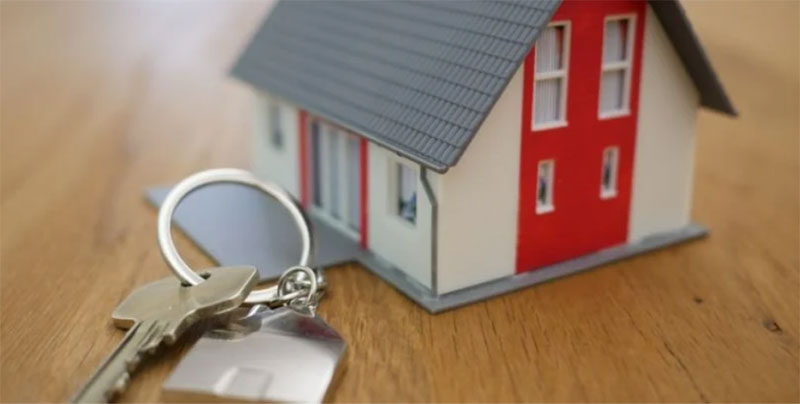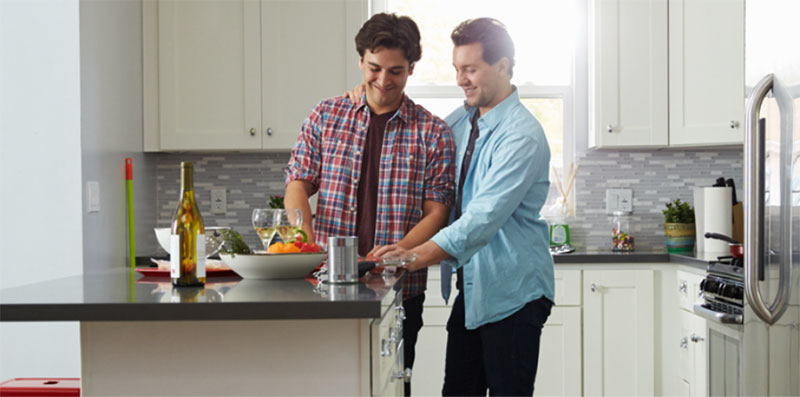Purchase of a Home by Age 35
Oct 13, 2023 By Susan Kelly
The 35-year-old sales employee Nicole Christianson was sick of paying exorbitant rent for a small flat. In addition, she had other plans for her savings than simply sitting on the sidelines.
Integrated Budgets And Hidden

She and her 28-year-old spouse Thure were pleasantly surprised when they looked at their joint bank account one night. They had pooled their resources to make a 5% down payment on the cheap Milwaukee fixer-upper directly across the street from their rental. They closed in December 2017, and Nicole says they are relieved to be "creating something that's ours."
Homeownership aspirations among millennials
Many people of Christianson's age seek out such experiences. NerdWallet's 2018 Home Buyer Report found that 82 per cent of millennials consider home ownership important. Most will be first-time purchasers if they can do so, but this is a big "if."
It's easy to see why millennials (those born between 1981 and 1997) buy homes at lower rates than prior generations were at the same age. For young individuals juggling school loans, low-paying jobs, and expensive rent, saving enough for a down payment and getting approved for a mortgage can seem like a distant dream.
Why it pays to invest in your youth
According to a report by the Urban Institute, a non-profit research organization, persons who purchased their first home between the ages of 25 and 34 have the most housing wealth in their 60s, with a median of roughly $150,000.
Individuals in their early 60s who purchased at a later age (between ages 35 and 44) had median housing worth around half as high, at $76,000. Those who purchased a home after age 45 had an average equity of $44,000 by the time they reached retirement age.
Value Of The Home On The Market And The Amount Of The Owner's Mortgage
Equity, defined as the difference between the current market value of a home and the outstanding mortgage balance, is also known as "housing wealth." Selling or refinancing house results in a gain in equity, which is expected to increase over time.
Young people, what should they learn from this? According to Laurie Goodman, vice president of housing finance policy at the Urban Institute, a home should be purchased as soon as financially possible.
According to Goodman, one of the best features of owning a home is paying rent to oneself. "Monthly mortgage payments are like forced savings because you have no choice but to make that investment. The same sum of money could be saved in a savings plan, but most people don't.
When it comes to buying a home, how much can I reasonably spend?
Urban Institute research associate Jung Hyun Choi argues that young adults should factor in the possibility of homeownership while making plans for their retirement.
"Job security is decreasing as people live longer," she explains. These factors make having a comfortable home more important than ever.
Affordability-improving loans and initiatives

Younger consumers can qualify for a mortgage with a far smaller down payment thanks to mortgage choices that lower up-front charges.
If you need money, we can help you locate a reputable lender.
Marissa Avila, 33, a self-employed small-business consultant in Norfolk, Virginia, says, "We wanted to deal with a VA lender." Because her 36-year-old husband, Greg, serves in the Navy, the couple got a VA-guaranteed loan. There was no down payment required for the Avilas to purchase their colonial-style home, thanks to a VA loan.
Borrowers in uniform aren't the only ones eligible for low down payment loans: The lowest down payment for some conventional loans is simply 3%, the minimum down payment for an FHA mortgage is 3.5%, and qualified applicants can acquire a USDA loan with no money down.
Learn the ins and outs of FHA loans.
Goodman suggests that first-time homebuyers look into monetary aid for the down payment. Mortgage, down payment, and closing cost subsidies are common services state housing organisations provide. She argues that millennials may be able to buy a home sooner through these programs than they would be able to through saving alone.
When in doubt, Avila suggests starting with a conversation with a lender.
She reassures us, "The worst that can happen is that they say no and tell us to save a little bit more money," and then we'll know where we stand. Once you've opened the lines of communication, everything becomes much simpler.







